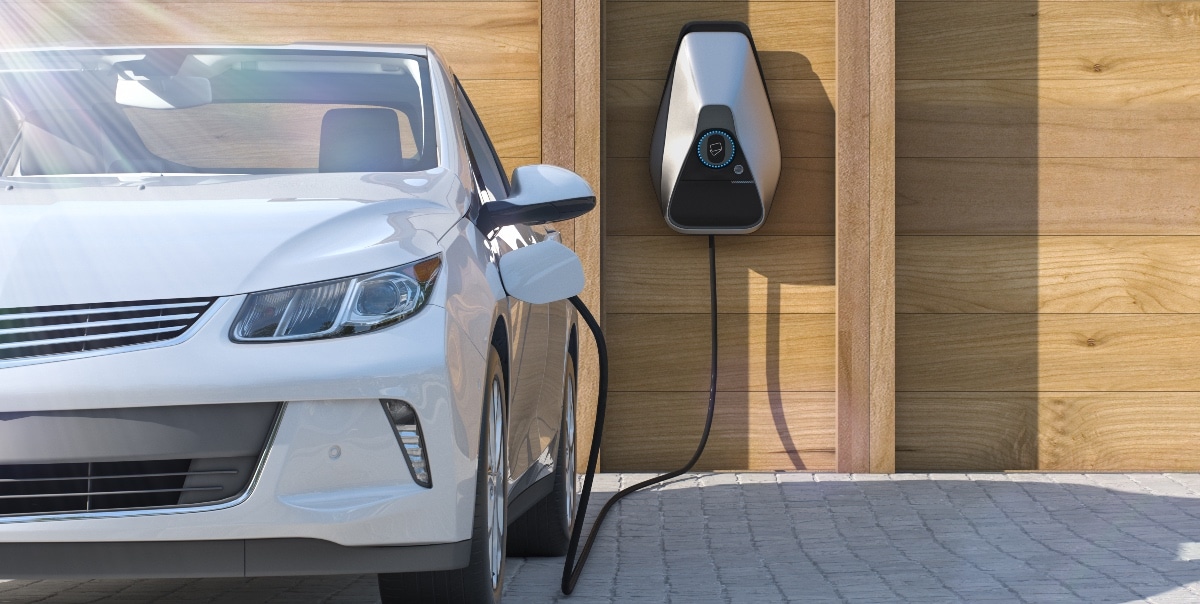Key Considerations When Installing an EV Charger

3 Min. Read
As electric vehicles (EV) become more popular, EV charging units are being installed in buildings all around the world. Installing an EV charger is not like plugging in a blender. It is an advanced electrical interface.
You’ll have to consider certain factors before adding it to your home. The first of these considerations is what are your true needs and limitations.
What charging equipment do you need?
How often will you drive your EV? If it’s just used for short commutes to work, you may not need as rapid a charge. You can leave your EV plugged in using the existing Level 1 charger that came with the vehicle. These deliver on average 3-5 miles of battery life per hour of charge. An overnight charge of 12 hours would net about 60 miles of range.
If you tend to make longer trips or multiple journeys to places that don’t have charge stations, you may want a faster charge. This is where a Level 2 charger makes sense. These chargers replenish the battery much faster but they require specific voltages to do so. This may require an upgrade to your electrical service (we’ll get into that later in more detail).
Standard or smart?
The two variants of EV chargers are standard and smart. Standard chargers simply deliver electricity to your EV and shut off when charging is complete. Smart chargers connect to your EV to determine the most efficient way to charge the battery. Depending on when you need your EV, a smart charger can select a time of day when electric grid demand is the lowest. This can result in lower total costs.
Cost is a drawback to smart chargers, though. For a user who has simple needs, such as overnight charging, a standard charging station may be fine. On the other hand, in a household or business where it is necessary to monitor how much each user is consuming, smart chargers are the way to go.
Inside or outside
Some chargers can be installed outside while others can only be mounted indoors. If you do not have a garage or protected area, you’ll have to find a charger that is designed for outdoor use. Make sure that the type you select has a long enough cable to reach your EV’s charge port. This could be a problem if your charger is on the opposite side of the garage from the charge port.
Electrical considerations
Once you determine where to install your EV charger, make sure that your home’s electrical circuits can support it. Most Level 2 chargers (the type most often used in home and small business upgrades) require 240 volts, as opposed to the normal 110 volts used. These chargers also draw a lot more current than the average household appliance.
As EV batteries get bigger, chargers are getting stronger. Some chargers draw up to 48 amps, and newer/faster chargers can draw up to 80 amps. By comparison, a vacuum cleaner only pulls a maximum of 12 amps. This will require more robust circuit breakers to protect your existing circuits from this much draw. So, leave working with this complicated circuitry and potentially dangerous amount of electricity to qualified professionals.
For safety and proper operation, a qualified electrician can prepare your electrical service and ensure that you are following all local regulations. Most jurisdictions require a permit for any 240-volt service.
Your homeowner’s or business insurance will also require proper permitting to validate your coverage. You’ll need to make sure that the hurdle is cleared before completing the installation. Once completed, an inspector will check and approve the installation before signing off on it.
An easier way to install an EV charger
There’s no way around it. Installing an EV charger can be a complicated undertaking. Fortunately, there is a way to avoid all of the hassles while still getting a high-quality charger installed. Qmerit has been providing turnkey EV charging installation services for years. Providing white-glove installation and integration services for EV charging and other electrification technologies, Qmerit makes it easy to go green.
Qmerit has the only network of qualified electrical service contractors across the United States and Canada that specialize in EV charging installations. Thanks to this network, Qmerit has had some customers charging in as little as half a day.
All of our contractor partners meet strict standards. They have the proper business licenses, insurance, and a clean criminal history. These partners along with our technology platforms and processes have installed more than 170,000 EV chargers for homes and businesses across North America.
Qmerit is at the forefront of the electrification movement — the shift away from fossil fuels toward a more sustainable, resilient, and electric-powered future. We’re accelerating the energy transition by making it easy for installing an EV charger.
